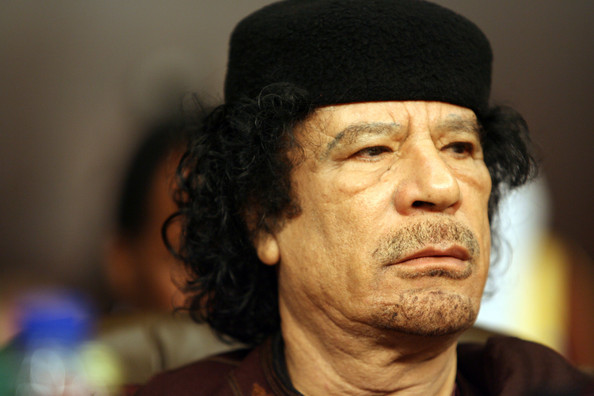Last Friday saw the first nationwide protests against the Baath regime in Syria. If these protests develop into a full-scale revolt, the regime’s response may dwarf that of Col. Muammar Qaddafi in Libya.
The last time Syrians rebelled, in the city of Hama in 1982, President Hafez al-Assad sent in the army. Hama’s center was destroyed by artillery fire, and at least 17,000 people were killed.
The current ruler, Bashar al-Assad, is allegedly a gentler person than his father Hafez, but the Baath Party still rules Syria and is as ruthless as ever. So what happens if the Syrians revolt and the Baath Party starts slaughtering people again? Do the same forces now intervening in Libya get sent to Syria as well?
 Syria has four times Libya’s population and very serious armed forces. The Baath Party is as intolerant of dissent as the old Communist parties of Eastern Europe. Moreover, it is controlled internally by a sectarian minority, the Alawis, who fear that they would suffer terrible vengeance if they ever lost power.
Syria has four times Libya’s population and very serious armed forces. The Baath Party is as intolerant of dissent as the old Communist parties of Eastern Europe. Moreover, it is controlled internally by a sectarian minority, the Alawis, who fear that they would suffer terrible vengeance if they ever lost power.
The UN Security Council was absolutely right to order the use of “all necessary measures” (meaning armed force) to stop Qaddafi’s regime from attacking the Libyan people. But it moves us all into unknown territory: Today Libya, tomorrow Syria?
The “responsibility to protect” concept that underpins the United Nations’ decision on Libya was first proposed in 2001 by Lloyd Axworthy, then Canada’s foreign minister. Frustrated by the UN’s inability to stop the genocides in Kosovo and Rwanda in the 1990s, he concluded that the problem was the UN’s own rules. So he set out to change them.
The original goal of the United Nations, embedded in the charter signed in 1945, was to prevent any more big wars like the one just past, which killed more than 50 million people and ended with the use of nuclear weapons. The deal was that the great powers (and indeed, all UN members) would have absolute sovereignty within their own territory, including the right to kill their opposition. The UN would have no right to intervene in the internal affairs of a member state no matter how badly it behaved.
By the early 21st century, the threat of nuclear war between the great powers had faded, but local massacres and genocides proliferated. Yet the UN was still hamstrung by the 1945 rules. So Axworthy set up the International Commission on Intervention and State Sovereignty (ICISS) to popularize the concept of humanitarian intervention.
“You can’t allow dictators to use the facade of national sovereignty to justify ethnic cleansing,” he explained.
The commission he set up concluded, unsurprisingly, that the UN has an obligation to protect people from mass killing at the hands of their own government. Because that could only be accomplished, in practice, by military force, the suggestion was actually that the UN Security Council have the right to order attacks on countries that indulged in such behavior.
This recommendation languished for years, opposed most strongly by the great powers — Russia and China in particular — who feared that the new doctrine might one day be used against them. But in 2005, the new African Union included the concept in its founding charter, and after that things moved fast.
In 2006, the Security Council agreed that, “We are prepared to take collective action, in a timely and decisive manner … should peaceful means be inadequate and national authorities manifestly fail to protect their populations from genocide, war crimes, ethnic cleansing and crimes against humanity.” And here they are five years later, taking military action against Qaddafi.
When 10 of 15 Security Council members voted in favor of the action, the rest, including Brazil, Russia, India and China, abstained. Russia and China didn’t veto the action, because they have finally figured out that the new principle will never be used against them.
Nobody will ever attack Russia to make it be nicer to the Chechens, or invade China to make it change its behavior toward Tibet. Great powers are effectively exempt from all the rules precisely because they are so powerful. That’s no argument for also exempting less powerful but nastier regimes that are murdering their own people.
So what about Syria? The same crude calculation applies: If it’s not too tough and powerful to take on, then it will be stopped from murdering its own people. If it is too big and dangerous, UN members will express strong disapproval, but won’t actually do anything.
Consistency is an overrated virtue.
Gwynne Dyer is a London-based journalist whose articles appear in many countrries..











